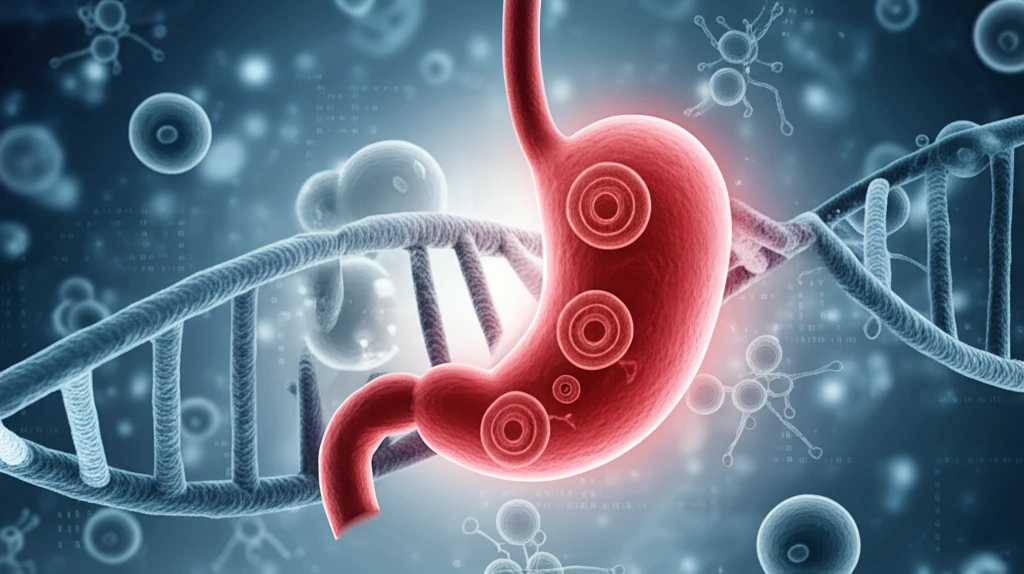
Decoding Hereditary Gastric Cancer: What You Need to Know About CDH1 Mutations
"Unraveling the Mystery of Diffuse Gastric Cancer: How Genetic Insights Can Save Lives"
Gastric cancer, a formidable adversary, ranks as a leading cause of cancer-related deaths worldwide. While various factors contribute to its development, a significant concern arises when gastric cancer appears to run in families. Hereditary Diffuse Gastric Cancer (HDGC) is a particularly insidious form of this disease, often linked to genetic mutations that can be passed down through generations.
At the heart of HDGC lies a gene called CDH1, which provides the blueprint for E-cadherin, a vital protein responsible for cell adhesion. When CDH1 harbors mutations, E-cadherin's function is compromised, leading to the development of diffuse gastric cancer. Understanding the intricacies of CDH1 mutations is paramount for early detection, risk assessment, and proactive management of this hereditary cancer.
Recent research has shed light on the complexities of HDGC, particularly in cases where the common culprit, Helicobacter pylori (H. pylori) infection, is absent. A groundbreaking study delved into a Japanese family affected by HDGC, revealing that CDH1 mutations can be the primary driver of cancer development even without H. pylori involvement. This article explores the key findings of this study, offering insights into the genetic landscape of HDGC and its implications for individuals and families at risk.
Unmasking the Genetic Culprit: The CDH1 Mutation Connection

The study focused on a Japanese family where two siblings were diagnosed with gastric cancer at a young age. The brother, unfortunately, succumbed to advanced gastric cancer at 28, while his sister was diagnosed with intramucosal signet ring cell carcinoma (SRCC) at 27. Genetic testing revealed that both siblings carried an identical germline CDH1 mutation, meaning the mutation was inherited from their parents.
- WES unveiled seven somatic mutations in the sister's cancer cells, including one in CDH1.
- Further analysis indicated that the six non-CDH1 mutations were likely non-driver mutations, meaning they did not actively contribute to cancer development.
- Immunohistochemistry confirmed decreased expression of E-cadherin in the SRCC tissue, highlighting the impact of CDH1 mutations on protein function.
Empowering Prevention and Early Detection: What You Can Do
If you have a family history of gastric cancer, especially if it includes multiple cases or early-onset diagnoses, it's crucial to consider genetic counseling and testing for CDH1 mutations. Early detection and preventive measures can significantly improve outcomes. While gastric cancer remains a significant health challenge, advancements in genetic research offer hope for more effective prevention and treatment strategies. Understanding your risk and taking proactive steps can make all the difference.
